Mexico remains a popular destination for foreign direct investors looking to diversify their manufacturing footprint, and for good reason. Since 1999, more than 13,000 companies have reaped the benefits of manufacturing in Mexico.
Mexico's strategic positioning as a hub for export-oriented manufacturing is a testament to its allure for foreign direct investors seeking to expand their global footprint. With a rich tapestry of free trade agreements, robust industrial clusters, and a skilled workforce, Mexico offers a conducive environment for companies looking to optimize their supply chains and access lucrative international markets.
Leveraging its proximity to the United States, Mexico has emerged as a preferred destination for companies aiming to streamline shipping logistics and reduce time-to-market for their products. Furthermore, Mexico's commitment to trade liberalization and its strategic infrastructure developments underscore its dedication to fostering a thriving export-oriented manufacturing ecosystem. As more companies recognize the benefits of regionalization and risk diversification in their manufacturing strategies, Mexico stands poised to continue its ascent as a leading destination for offshoring operations.
Manufacturers wondering what Mexico may hold for them will find a straightforward path to operational readiness, set by countless other organizations. If your company is thinking about manufacturing in Mexico, this article will provide you with all the information you need to start your due diligence process.
Advantages of Manufacturing in Mexico
There are many reasons that foreign direct investors looking to diversify their manufacturing footprint consider Mexico. Here are some of the main benefits associated with manufacturing in Mexico:
1. Government incentives
The federal government is committed to supporting manufacturing in Mexico, which made up 17 percent of the country’s GDP in 2018. One of the primary forms of support is through tax incentives under the IMMEX program. Through this government program, manufacturers in Mexico exporting their goods within a set timeframe are allowed “temporary” importation of production materials and assets without having to pay to 16 percent value-added tax on those items.
Companies must be registered under the IMMEX program and obtain an IVA Certification to take advantage of these significant cost savings. The simplest way to take advantage of these government incentives is through the shelter program. Manufacturers in Mexico operate under the legal framework of a shelter service provider registered under the IMMEX program. In this way, manufacturers moving into Mexico can simplify regulatory red tape, lessen their tax burden and, in some cases, get new operations up and running in as little as 30 days.
2. Access to global markets
Mexico's proximity to the United States has made it the country's largest trade partner, with 76.5 percent of Mexican exports heading north of the border. For companies seeking to enter the U.S. market, establishing operations in Mexico offers the added benefit of cost-effective shipping. Shipping a 40-foot container from Mexico to the U.S. costs $1,800 and takes just one week, compared to the $4,300 cost and 5-week timeline for shipping from China. With deepwater ports, rail lines, international airports, and the NAFTA Superhighway connecting to Canada, Mexico offers a strategic location for trade.
In addition to its direct U.S. trade, Mexico is also a reliable choice for investors worldwide. In 2018, Mexico shipped USD 450.9 billion worth of products around the world. With more free trade agreements (FTAs) than any other country in the world, Mexico is a trading partner with more than 50 countries, with agreements reaching into Europe, South America, and Africa. These agreements reduce barriers to trade, including tariffs and import quotas, to build strong cooperation in the exchange of goods and services.
What’s more, the trend of regionalized production, with manufacturing hubs in several of Mexico's regional markets, is taking a stronger hold in many industries. With disruptions to trade in China, ranging from U.S. tariffs to viral outbreaks, manufacturers around the world are recognizing that a broad manufacturing footprint offers more flexibility and less risk than concentrating production in a single location.
3. Cost for skilled labor
Mexico's manufacturing industry is not just about low labor costs - it's also about the highly skilled and trained workers in industrial clusters. These workers are experts in sophisticated manufacturing techniques and are supported by numerous training programs that provide technical expertise and hands-on experience. With the manufacturing industry being a crucial part of Mexico's economy, the government is committed to investing in the education and training of its workforce. The U.S.-Mexico-Canada Agreement has also stipulated increases in wages, which will be phased in over several decades. This will help employers retain and attract highly trained workers, leading to increased productivity and growth for the industry as a whole. In short, Mexico's manufacturing industry has a lot more to offer than just low labor costs - it has a skilled and dedicated workforce that is committed to producing high-quality products.
Major manufacturing industries in Mexico

While any manufacturer can benefit from doing business in Mexico, a handful of manufacturing industries will find tremendous benefits from concentrated supply chains. These industrial clusters help companies scale supply chain efficiencies and often generate stronger training resources for a local workforce focused on securing these jobs. Five industries, in particular, have attracted supporting manufacturers to concentrate strong supply chains within Mexico.
1. Aerospace
Aerospace manufacturing has become a major player in Mexico's economy, accounting for almost half of the foreign direct investment in the country. The industry has grown significantly in recent years, with approximately 300 aerospace manufacturing companies operating throughout the country, including OEMs and Tier 1, 2, and 3 suppliers. These companies are concentrated in industrial clusters located in Queretaro, Sonora, Chihuahua, Nuevo Leon, and Baja California. Of these locations, Queretaro is home to the largest aerospace cluster in the country, which is supported by local university partnerships with companies such as Bombardier. Mexico's success in aerospace manufacturing can be attributed to its highly skilled workforce, favorable business climate, and strategic geographic location, which provides easy access to markets in North America and beyond.
2. Automotive
The automotive industry is undoubtedly one of the most significant industries in Mexico, with almost a century of experience in the country. As the fourth largest exporter of auto parts globally and the primary auto exporter to the United States, the industry is thriving. Over ten automotive OEMs have established their presence in Mexico and are continuously working with tiered supplier networks to enhance productivity and export functions. The automotive manufacturing companies have spread across the country, with clusters in Coahuila, San Luis Potosí, Baja California, Sonora, Nuevo León, Queretaro, Jalisco, and Guanajuato. These locations offer various advantages, including proximity to major highways, land ports of entry, airports, seaports, and rail spurs, making transportation easy and cost-effective.
3. Medical Devices Manufacturing in Mexico
Mexico's medical device industry is a vital player in the global market, with a diverse range of products manufactured by nearly 650 companies. The industry's skilled labor force and specialized manufacturing processes make it a prime destination for medical device production, with many devices crafted by hand due to their intricate design. The industry exports approximately USD 8 billion worth of products, with the United States being the largest market, accounting for 92 percent of all exports. Other major markets include Germany, Italy, Spain, the Netherlands, and Japan.
The industry's largest cluster of medical device companies is located in Baja California, with 67 companies operating there. Other significant clusters can be found in Chihuahua, Coahuila, Nuevo León, Jalisco, Sonora, and Tamaulipas. These clusters offer a skilled workforce and a supportive business environment, making them an attractive destination for medical device manufacturers.
With its expertise in medical device manufacturing, Mexico has established itself as a leading player in the global market, providing high-quality products that meet the rigorous standards of the industry. As the industry continues to evolve and new products are developed, Mexico's medical device manufacturers will continue to provide innovative solutions to meet the needs of patients and healthcare providers worldwide.
4. Electronics
Mexico's electronics manufacturing industry has become a crucial component of the country's overall manufacturing sector, with a particular focus on aerospace, hi-tech, IT, and electronic sub-assembly parts. Western Mexico, in particular, has established itself as a leading hub for these industries, with states such as Baja California, Sonora, Chihuahua, Jalisco, and Aguascalientes at the forefront of innovation and technology. Meanwhile, eastern Mexico has focused on the production of computer parts, home appliances, and consumer goods, with significant activity concentrated in Coahuila, Mexico City, Nuevo León, Querétaro, and Tamaulipas. However, both regions share a commitment to the manufacturing of high-quality automotive and telecommunications components, reflecting Mexico's position as a major player in the global electronics industry. With a skilled and dedicated workforce, state-of-the-art facilities, and a supportive regulatory environment, Mexico's electronics manufacturing sector is poised for continued growth and success in the years to come.
5. Appliance Manufacturing and Furniture Manufacturing
Mexico's appliance manufacturing and furniture manufacturing industries are major players in the global market, with Mexico ranking fifth in the world for appliance exports. These industries often cluster together, sharing a skilled workforce and supplier network. The cities of Queretaro, Tecate, Guadalajara, Monterrey, and Saltillo are particularly sought after for their expertise in furniture and appliance manufacturing. With a focus on innovation and quality, these manufacturing centers continue to attract foreign investment and drive economic growth in Mexico. From refrigerators to sofas, Mexico's appliance and furniture manufacturers are known for their high-quality products and commitment to excellence.
Steps to start manufacturing in Mexico
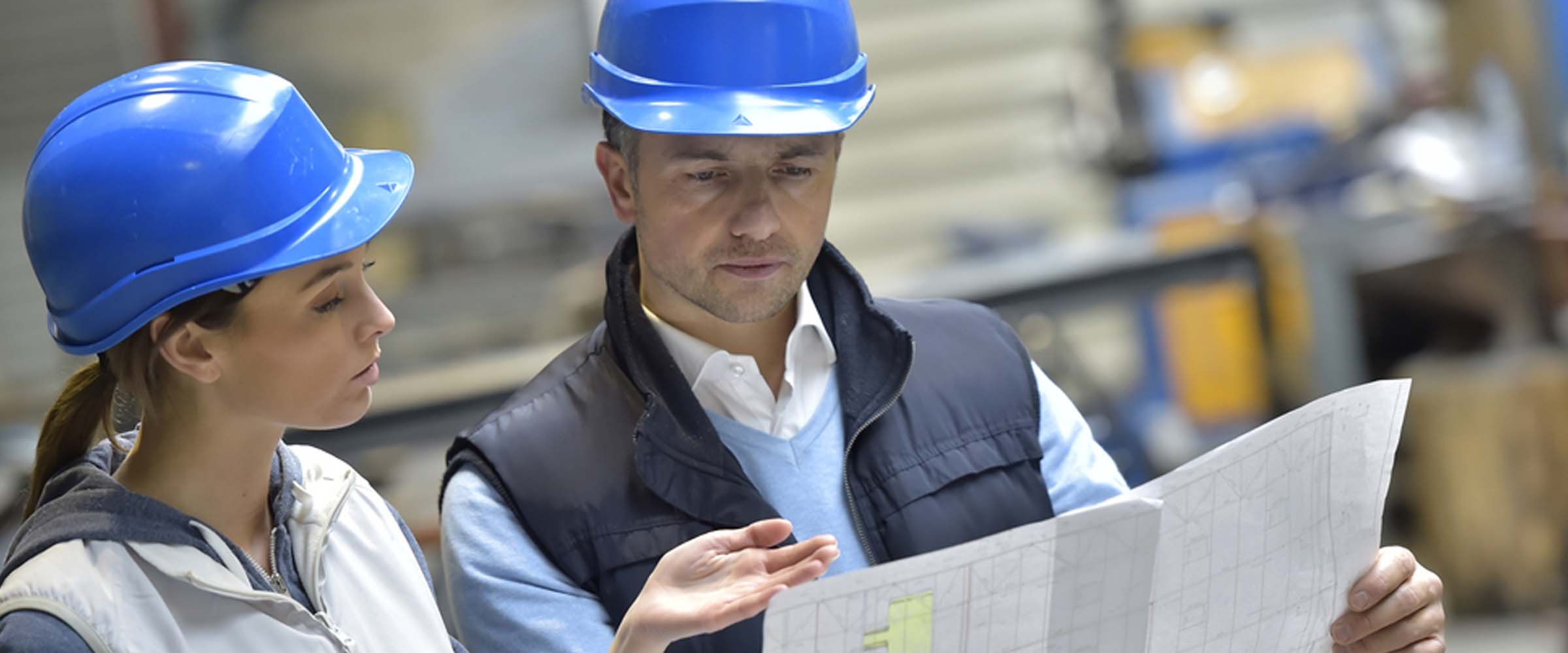
Companies ready to take advantage of the strengths of Mexico’s manufacturing centers have several choices to make about how and where they’ll enter the market. With each option, an organization will have to decide the level of control they want to maintain over each aspect of their business and where they might benefit from in-place solutions. The first of those choices is related to the operational model.
Step 1: How do you manufacture in Mexico?
The first step to launching a manufacturing operation in Mexico is to identify the right operational model for your organization. There are several options available, each with varying levels of control and responsibility.
Standalone operation
A standalone operation is an attractive option for companies seeking complete control over their Mexico facility. It gives them full responsibility for all legal, regulatory, and tax-related matters, allowing them to manage their operations independently. However, setting up a new legal entity in Mexico can be a complex and time-consuming process, which is why many companies prefer to outsource certain functions to local consultants. This can include legal and accounting services, regulatory compliance, and other administrative tasks. Outsourcing these functions can help companies save time and money while also ensuring that they remain compliant with Mexico's laws and regulations. Ultimately, the decision to choose a standalone model will depend on the company's specific needs and goals, as well as their willingness to take on the additional responsibilities and risks associated with this approach.
Shelter services model
The “shelter” manufacturing model began in the 1980s as a way to help foreign investors reduce their risk in manufacturing in Mexico and help speed their operations to market. The term “shelter” implies shielding the international company from exposure to trade, labor, and tax laws. Through this model, the foreign investor maintains total control of all production-related functions and assets, while an IMMEX-registered shelter service provider handles all administrative and non-production burdens. The shelter provider is the legal entity responsible for regulatory compliance and with which local service providers trade.
Shelter service providers do not all offer the same level of service, so it’s essential to identify the level of support that is right for your organization. There are roughly six levels of services available from shelter companies in Mexico:
- Full-service Mexico shelter companies provide a complete array of services, with help from start-up and real estate leasing to ongoing accounting and HR support.
- Full shelter services focus on administrative support from day one. However, these companies aren’t in the business of leasing real estate.
- Mexico shelter companies for start-ups help foreign manufacturing entities get set up, but then turn daily operations over to the international manufacturer’s in-house support team.
- Contract manufacturing plus some shelter services is an option that connects manufacturers with support on an as-needed basis, including subcontracted workers.
- Real estate companies that also offer shelter services focus on the rental and sale of industrial real estate. Some may also provide some level of administrative support.
- Pick-and-choose shelter services allow manufacturers to tailor service offerings that meet specific needs.
Contract manufacturing in Mexico
Contract manufacturing in Mexico is a popular option for companies looking to take advantage of Mexico's skilled workforce and low-cost production capabilities. In this model, the foreign company contracts with a Mexican manufacturer to produce goods on their behalf. The Mexican manufacturer owns most of the production assets and controls the production process, charging the foreign company a fee for the finished product.
One of the benefits of contract manufacturing is that it allows companies to quickly and easily enter the Mexican market without the need to invest in expensive infrastructure. However, it does come with some risks. Since the foreign company has little control over the quality of the work being performed by the contractor, there is a risk that the finished product may not meet the desired specifications.
To mitigate this risk, it's important for companies to carefully choose their manufacturing partner and establish clear communication channels to ensure that expectations are met. Additionally, it's important to have a solid contract in place that outlines each party's responsibilities, including quality control measures and dispute resolution processes.
Despite these risks, contract manufacturing continues to be a popular option for companies looking to take advantage of Mexico's manufacturing capabilities. By partnering with a reputable manufacturer, companies can benefit from Mexico's skilled workforce, low production costs, and favorable regulatory environment, while minimizing their risk and maintaining control over their operations.
Merger or acquisition
Mergers and acquisitions are a less common way for foreign investors to enter the Mexican market but can be advantageous for those seeking to quickly establish a presence. By merging with or acquiring an established Mexican manufacturer, the international company benefits from pre-existing manufacturing operations that already meet Mexico's compliance and regulatory requirements. This can save time and resources that would otherwise be spent on setting up a new facility.
However, mergers and acquisitions require careful consideration and planning. Integrating management partners can present challenges, particularly when cultural differences and language barriers are involved. Additionally, the international company must ensure that the Mexican manufacturer's operations align with their goals and standards. Due diligence is crucial to identify any potential risks or issues before finalizing the merger or acquisition.
Despite these challenges, mergers and acquisitions remain a viable option for companies seeking to enter the Mexican market. By carefully selecting a suitable partner and conducting thorough due diligence, companies can benefit from an established manufacturing operation while minimizing the risks associated with starting from scratch.
Joint venture model
A joint venture can be a mutually beneficial arrangement for both the foreign and Mexican companies involved. By leveraging each other's strengths, they can achieve a common goal that may not have been possible on their own. For example, a foreign company may bring a strong customer base and marketing expertise, while a Mexican manufacturer may have the necessary assets and technical know-how to produce high-quality products.
This type of partnership can be especially useful for companies looking to enter a new market or expand their product offerings. By working together, they can tap into each other's resources and capabilities, reducing the risk and cost of starting from scratch. Joint ventures can also provide opportunities for knowledge sharing and skill development between the two companies, leading to long-term growth and success.
However, like any business arrangement, joint ventures require careful planning and clear communication to ensure that both parties are aligned on their goals and responsibilities. It's important to establish a solid agreement that outlines each company's contributions, profit-sharing arrangements, and dispute resolution processes. By doing so, both companies can navigate any challenges that may arise and reap the benefits of their partnership.
Read this blog post to learn more about the different modes of entry for manufacturing in Mexico.
Step 2: Where do you manufacture in Mexico?
For many Mexico manufacturers, proximity to industrial clusters provides a good starting place for site selection. Companies seeking a rapid startup may find the most benefit from joining a Manufacturing Community. These communities are far more than industrial parks. Typically, they combine leasable Class A industrial space with shelter services under the IMMEX umbrella that includes a legal framework and onsite support such as assistance with HR, payroll, import/export, accounting, and purchasing. Communities like the Bella Vista Manufacturing Community in Sonora or the Zapa Manufacturing Community in Saltillo, Coahuila, ensure utility connectivity, provide onsite training, and even feature amenities to appeal to your potential workforce.
Manufacturers looking for more customized solutions may opt to build new facilities from scratch. In this case, it’s essential to consider the following site selection factors:
- Transportation ease. Consider proximity to major highways, land ports of entry, airports, seaports, and rail spurs. Easy transport to the U.S. is one reason more than 56 percent of maquiladoras are located in one of the six Mexican states bordering the United States.
- Utilities availability and cost. Overall, utility costs also are competitive with U.S. costs. However, not all industrial areas are fully serviced with natural gas. While pipelines are under construction to alleviate demand, manufacturers may want to focus on areas already connected to a source of natural gas to prevent the risk of service disruptions.
- Potential for available staffing. Every location will have unique staffing costs. Regional manufacturing centers, with plenty of competition, may push companies to offer more competitive wages for employees. However, operating in rural areas may lead to additional costs for employee transportation or food services. Employers may weigh their need for already trained staff compared to providing training in-house.
Primary manufacturing locations in Mexico
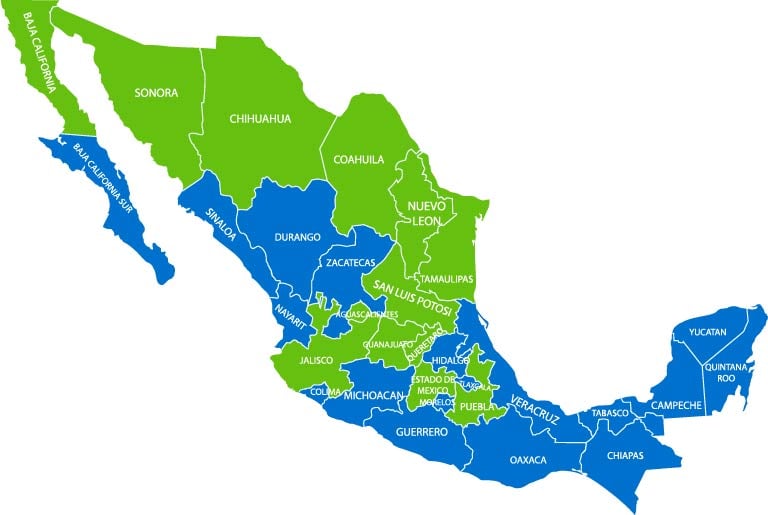
Each region in Mexico offers its own benefits, so it’s essential to have your priorities in order as you consider future sites. Is immediate access to the U.S. market a priority? Or are you willing to locate further south where wages may be less competitive? Are there certain supplier types whose proximity you’d like to leverage? Or do you just need ample room to launch your own facility? Here are the most popular manufacturing locations & venues in Mexico:
- Tijuana: A prominent manufacturing hub due to its proximity to the U.S. border, Tijuana remains attractive for manufacturers across various sectors. While the data about 26 percent of the population being employed in manufacturing is from an earlier date, it's important to note that Tijuana might have experienced changes in its workforce composition or cost structures since then.
- Monterrey: Monterrey continues to be a major commercial and industrial city in northern Mexico. Its diversified manufacturing base, including steel production, makes it appealing to companies across industries such as aerospace, automotive, electronics, and medical devices.
- Saltillo: Known for its long-standing automotive manufacturing presence with companies like Chrysler and General Motors, Saltillo continues to benefit from its robust infrastructure including training institutes and research centers.
- Queretaro: The city has been gaining attention in the aerospace sector, with companies like Airbus, Bombardier, and Safran establishing a presence. Its location, roughly nine hours from the U.S border, may offer more competitive wages compared to locations closer to the border.
- Guanajuato: Located in the El Bajio manufacturing region, just north of Mexico City, Guanajuato was one of the fastest-growing manufacturing states as of my last update. Its automotive manufacturing sector is particularly strong.
- Hermosillo, Guaymas, and Empalme in Sonora: These cities form a network that is favorable for manufacturers in the aerospace, automotive, electronics, optical, medical device, metal fabrication, and other industries. The region offers a competitively priced labor force and has the logistical advantage of access to a deep-water port, international airport, and major U.S. highways.
As circumstances may change over time due to economic, political, or other factors, it’s critical to conduct thorough, up-to-date research and possibly consult with local experts or authorities for the latest information when considering manufacturing locations in Mexico.
Step 3: What does it cost to manufacture in Mexico?

The only real way to ensure your company will see cost savings from manufacturing in Mexico is to launch a complete cost analysis of initial and long-term costs. Some factors to focus on in that analysis include:
- Lease rates: Average lease rates per square foot per month, triple net, ranging from an average USD 0.65 in Monterrey to $0.81 in Tijuana. Prices will fluctuate depending on the specific region, quality of the industrial property, and market demand.
- Utility costs: Electrical costs, on average, fall around $0.110 per kWh. In some areas, these costs may be offset by different demands for air conditioning or humidity control. Natural gas costs will range from USD 0.037 per m3 to $0.0956 per m3, depending on the region and monthly volume. Water and sewer costs of USD 0.007 per gallon is typical.
- Payroll: Wages will vary depending on the skill set required. On average, unskilled direct laborers in Mexico may earn around USD 3.40 per hour. More skilled direct laborers, such as CNC machinists who may have several years of training, may make closer to USD 7.02 per hour. For indirect labor positions, such as a materials planner, wages might average closer to USD 13.51 per hour for a specific skill set. Of course, these averages are based across a wide range of pay scales across Mexico but offer some insight into potential cost savings.
- Logistics: In addition to typical freight costs, companies will need to factor in customs costs. These costs will vary based on where you’re shipping your products and how often you ship.
- Regulatory and administrative costs: There will be initial fees for incorporation, registration requirements, and operating permits. Some of these costs can be reduced by manufacturing through a shelter service provider.
- Comparable costs: An accurate cost analysis should benchmark operational costs in similar industries and regions to get a sense of whether you’re getting the most out of your operational expenditures.
Step 4: How will you set up a factory in Mexico?
Companies ready to begin manufacturing in Mexico can ramp up operations in as little as 30 days with the assistance of a shelter service provider. And any company ready to maximize their speed to market can get a new operation off the ground quickly with ample advance planning. Important considerations to examine in this ramp-up stage include the following:
- Decide if you will sell goods in Mexico or solely export products. Foreign investors that will export all goods manufactured in Mexico do not need to establish a separate legal entity in Mexico. However, if the manufacturer plans to invoice the sale of those goods and services to companies within Mexico, it must have a Mexican entity.
- Determine the appropriate corporate structure. Companies will want to explore fully whether a level of shelter service can help them better manage costs or determine whether they are best benefited by a S.A. de C.V. or S. de R.L. corporate structure.
- Identify regulatory requirements. Companies operating under a shelter service provider can reduce a regulatory burden that includes IMMEX registration and obtaining registration or permits from the Social Security Department (IMSS), Customs (ADUANAS), and the Department of Environmental Health and Safety (SEMARNAT), among others.
- Choose whether to lease, buy, or build new. Ample Class A industrial space can be found across Mexico, often in well-connected industrial clusters, and quickly adapted to meet a manufacturer’s unique needs.
- Identify staffing needs, including training. Strong vocational training in universities and specialized manufacturer-supported training centers, is a priority in Mexico.
- Evaluate local suppliers. There may be opportunities to streamline costs by getting to know local suppliers’ parts capacity and competency in providing quality parts.
- Meet with authorized customs brokers. Only approved Mexican customs brokers can clear your manufactured goods through Mexican customs.
Ready to manufacture in Mexico?
Operating in a low-cost manufacturing environment is a fine strategy for reducing operational expenses. However, truly seeing those cost benefits demands ample advance planning. Speed to market also plays a major role in realizing cost savings. Companies that quickly ramp up their manufacturing operations will more quickly see a return on their investment. This is one more area where manufacturing in Mexico offers significant advantages. The shelter service model can be a major boon to companies willing to benefit from working with an experienced advisor.
To develop the right approach for your company to begin manufacturing in Mexico today, contact Tetakawi.
Below this text, you will find a recording of our webinar, "Should you manufacture in Mexico?" this recording is helpful for manufacturing executives who are wondering if they should expand into Mexico.
Subscribe
Sign up and stay informed with tips, updates, and best practices for manufacturing in Mexico.

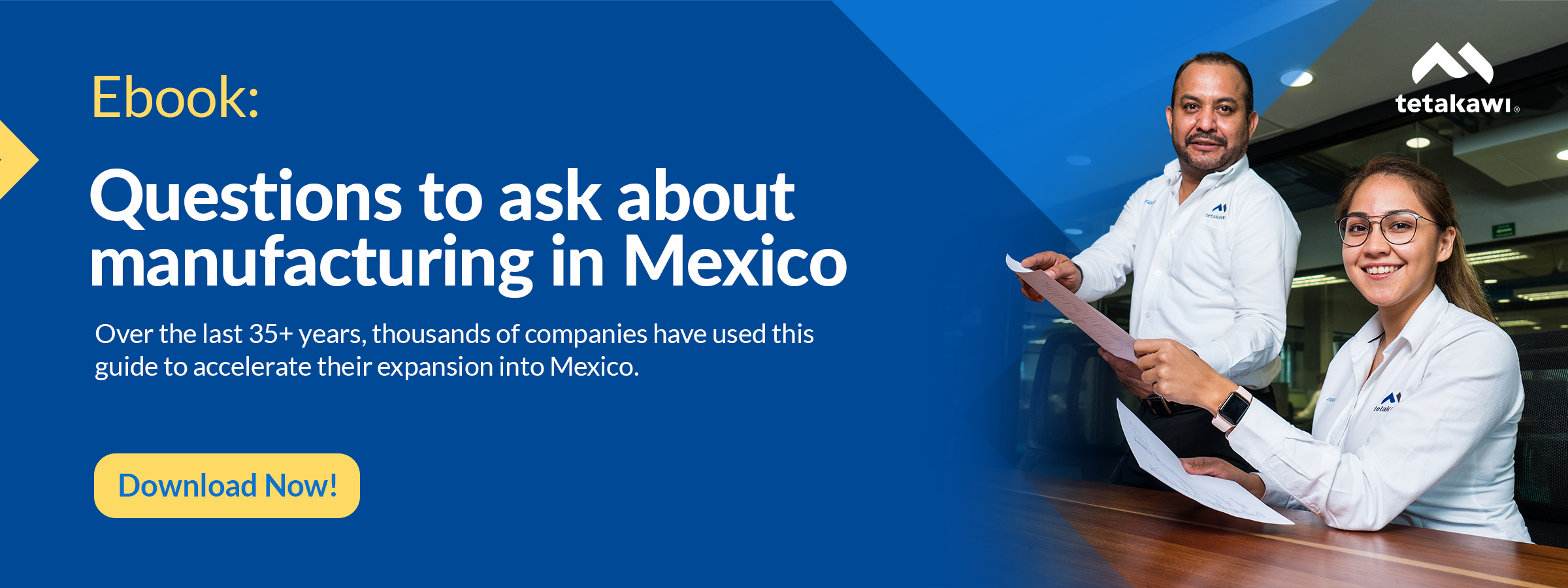

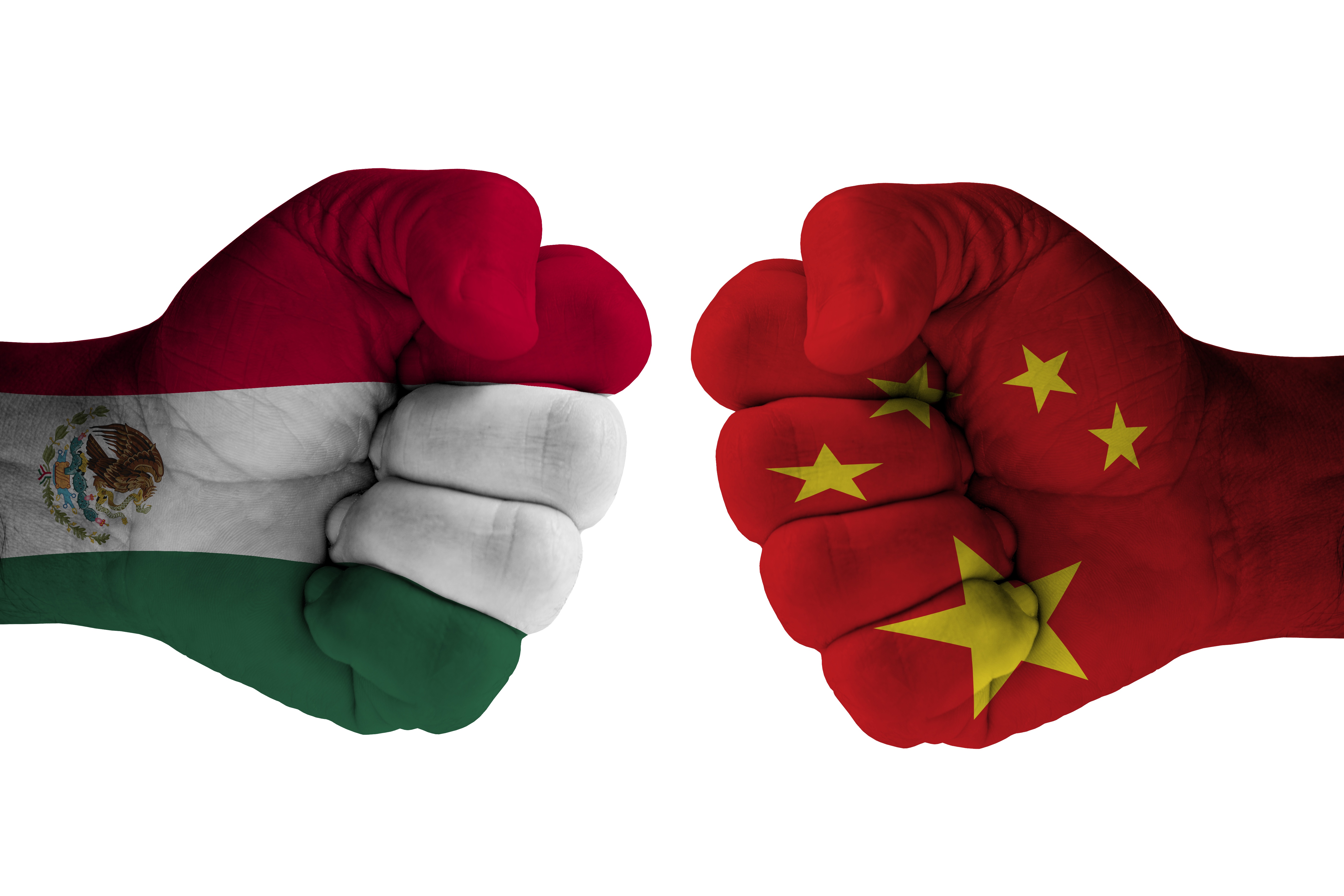
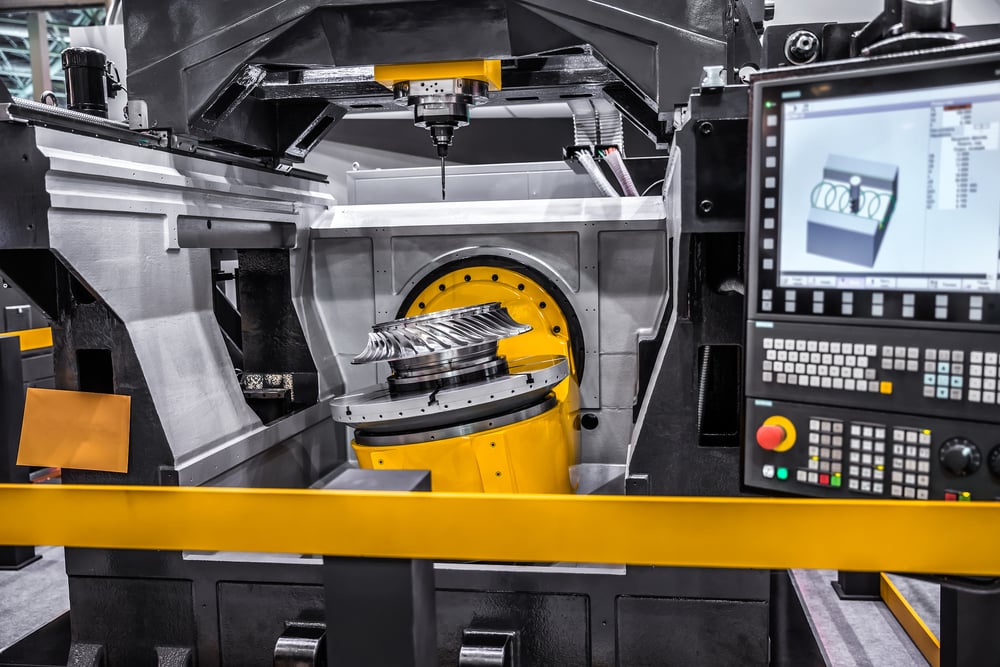
.jpg)
